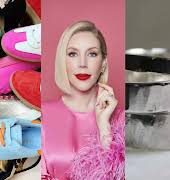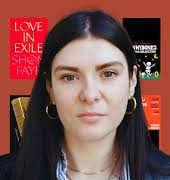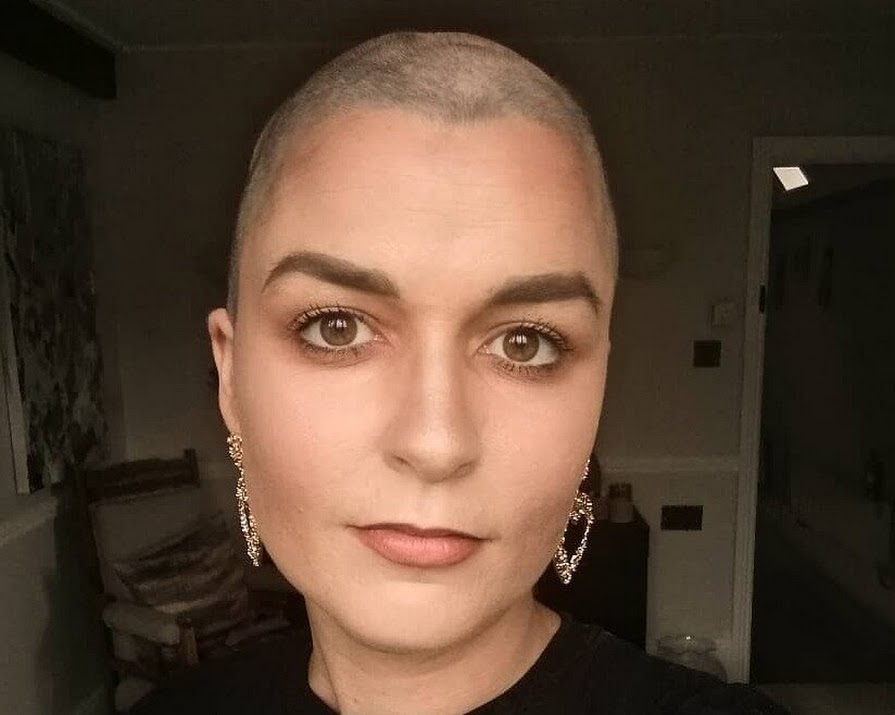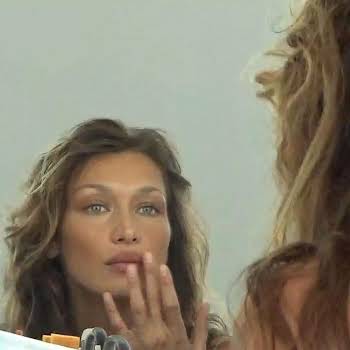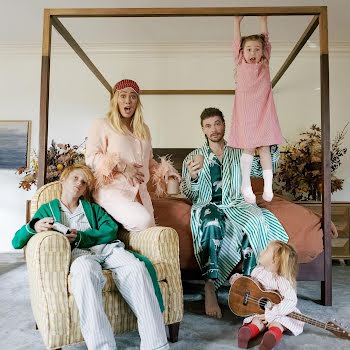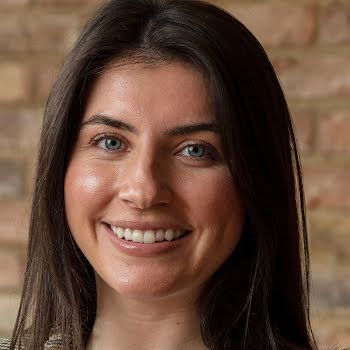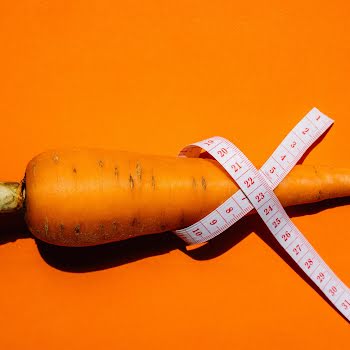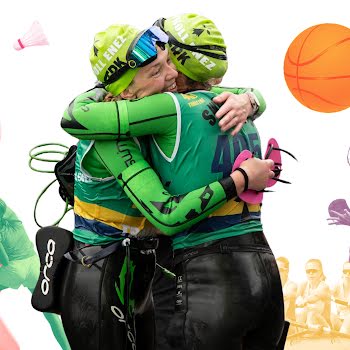
Living with brain cancer: ‘I’m creating a time capsule for my children when I’m gone’
By Erin Lindsay
14th Sep 2020
14th Sep 2020
Alannah Sheehan talks to IMAGE about showing her journey with brain cancer through Instagram
This weekend, while scrolling through Instastories, I spotted one of my favourite influencers crying while chatting to the camera. She was telling viewers to follow an account called @worth_fighting4, tearily talking about appreciating your lot in life. I clicked on the account expecting to tear up too – but instead, a life-affirming smile appeared on my face.
Alannah Sheehan, a wife and mother of three young children living in Tipperary, is the woman behind @worth_fighting4. She is funny, eloquent, bubbly, and the perfect personality to chat on camera. Her house is beautiful, she has great style, and her snaps with her kids are the stuff of mummy blogging dreams.
Alannah is also living with a rare, incurable form of brain cancer. Patients diagnosed with it have around a 50% chance of surviving beyond two years. With three young children, a new mortgage and a global pandemic, Alannah has been going through aggressive treatment on her brain tumour, documenting her journey with cancer on Instagram – the ups, downs, laughs and tears.
Put it down to stress
After buying a house, and having her third child, Alannah began to feel unwell with headaches and dizziness, but doctors put it down to sinus trouble. “They sent me off with a prescription for Sudafed, and though I had some dizzy spells on and off after that, I never really gave it another thought”, she said.
As I collapsed, she grabbed Phoebe by the babygro and saved her – I would have crushed her otherwise.
On the night of her daughter Phoebe’s christening earlier this year, Alannah suffered a seizure while she was sleeping. “My husband woke up to find me face down in bed and could hear me gurgling as the blood was coming out of my mouth.
I returned to the doctor and told him what happened, and he just told me it was down to stress.”
A few weeks later, Alannah’s illness came to a head, when she had another seizure at a friend’s house “I woke up that day and knew that something didn’t feel right. I walked downstairs, and as I walked into the sitting room, I could feel myself being pulled towards the floor. I had Phoebe in my arms, and it took every bit of strength I had to reach out and try to steady myself. I was trying to shout out ‘help’ to my friend, but I couldn’t speak.
As I collapsed, she grabbed Phoebe by the babygro and saved her – I would have crushed her otherwise. I would have normally been home on my own that day, with the three kids, and I just can’t even think about what would have happened if I was alone.”
Alannah doesn’t remember what followed – she had a violent seizure, and woke up in the ambulance on the way to hospital in Tullamore.
After a number of scans and tests, Alannah was finally given a reason for her symptoms – there was a large mass on her brain, and surgery was needed to find out what it was.
“You have a high-grade tumour”
Alannah had an awake craniotomy, where surgeons removed 90% of the mass on her brain and sent a sample for testing. After a week’s recovery in the hospital, she was sent home to await her results. Three days later, lockdown began.
“I was calling the hospital every two or three days, just trying to talk to someone, to see where my results were. After waiting for nearly three weeks, I got the phone call.
“The doctor just said: ‘you have a high-grade tumour’, and I didn’t know what that meant, so I asked ‘is it cancer?’ And he said yes.
It is incurable and patients who are treated for it have a 50% chance of surviving beyond two years.
I couldn’t speak. I had my notebook in front of me with all these stupid questions written down like ‘when can I go on holidays?’, and I couldn’t read them. All the information I was left with was that ‘my life expectancy was greatly affected’, and that was it. I was just alone, in shock.”
Alannah was left with Google, and found that her cancer, Glioblastoma Multiforme, is very rare, especially in women, and especially in someone her age. It is incurable and patients who are treated for it have a 50% chance of surviving beyond two years.
Alannah is on a treatment plan of six months of chemotherapy and 30 sessions of radiotherapy. Normally, these treatments would be completed concurrently, but because of Covid-19 restrictions, Alannah has had to spread hers out. She will be halfway through her chemotherapy treatment next month.
‘It made me feel less alone’
In the midst of the stress, shock and confusion of diagnosis and treatment came Alannah’s Instagram page, @worth_fighting4. She posts selfies, photos of her family and home, all with lengthy captions describing the highs and lows of having a rare form of brain cancer. Why did she decide to set it up?
“My husband encouraged me in the beginning. He knows me better than anyone, and he knows that I like to be busy, to have a goal and a project to work on. It gave me an excuse to get up and dressed every day, get glammed up, and talk to people. It made me feel so much less alone – I found people from all over who had similar conditions to mine, who gave me advice and resources that I never would have had otherwise”
It’s so important to me, especially for my daughter, to show that there’s nothing wrong with having bad days, where you don’t look or feel well.
The profile also serves a more serious function – Alannah likes to see it as a time capsule for her children to enjoy after she’s gone. “The worst thing to think about is how I’m not going to be here for everything for them. I was trying to figure out if I should write them letters, or record nursery rhymes: I didn’t know what to do. I just think this is the easiest way to do it – they’ll have videos, and pictures, and messages, and they can see what I was really like, and I can give them the realistic side of life. It’s so important to me, especially for my daughter, to show that there’s nothing wrong with having bad days, where you don’t look or feel well.”
Remaining authentic on social media is a struggle for us all, but it’s particularly important to Alannah. “I always have people talking about how positive or bubbly I am, but I want to show that it’s not always like that. In the first few weeks after being diagnosed, I didn’t function at all – I couldn’t. My eyes were swollen from constantly crying, and I had no energy for anything – I completely gave up on life.
But now, even though it’s still very upsetting, I just try to get up and do what I can. I’ve been dragged through the mud at every single opportunity in my life, but it has stood to me now. If I have a problem, I’ll look for the solution and try and sort it out”.
Independence
About a month ago, friends of Alannah’s set up a GoFundMe page for her and her family, aiming to raise money to cover everyday costs while Alanna was going through treatment. Although grateful, she was against the idea at first.
“I said ‘no way, I’m not ready’. I’m a really independent person, and it’s actually a flaw in me that I never ever ask for help.”
But as time went on, Alannah and her husband started to fall behind financially. Both of them have had to give up work due to Alannah’s illness, and are on social welfare payments for the foreseeable future. The couple just bought their home in November of last year, so mortgage payments are a big factor – at one point, Alannah had to make the monthly payment on a credit card.
She decided to do what she’d always rallied against – ask for help. Alannah took to her Instastories and explained the situation to her followers, telling them about how the GoFundMe page could help her and her family. In just over three weeks, the fund has raised almost €75,000.
“I’m so happy that I made that video”, Alannah said. “I’m so grateful for all the support, and I know that one way or another, that money will prolong my life.
My husband and I are very hard workers, but he especially has worked his butt off to provide for us. Since the fund was set up, I can just see him relax a bit more and it makes me so happy. If it wasn’t for people’s kindness, whether it’s messages, or cards, or the money that’s been raised, I would not be as well as I am mentally. It’s just given me such a boost.”
All or nothing
Living with an incurable cancer diagnosis means that planning ahead is no longer a daily activity for Alannah. Since her illness began, she’s learned to focus on living in the moment. “I’m very proactive, and with me, it’s all or nothing. I mean, I couldn’t just get any cancer, I had to get the worst, rarest form of it”, she laughed. “All I’m focused on now is thinking about today and enjoying it. I’m not dying today, so I don’t need to cry today. That’s how I feel about it”.
And at the end of a year that has been painful beyond measure, are there any causes for celebration on the horizon? “It will be Phoebe’s birthday in November, and it will also mark our first year of owning our home”, she says. “I also just can’t wait for Christmas, which I’ve always loved. It sounds so cheesy, but just to spend time together – quality time, that’s what I’m looking forward to”.
Read more: Chronic Migraine: how sea-swimming has helped to reduce my symptoms
Read more: ‘I landed my dream job when I was six months pregnant with my first child’
Read more: Suicide prevention: ‘My brother faced stigma, red tape, long waiting times, under-resourced hospitals. In the end it was too much’


